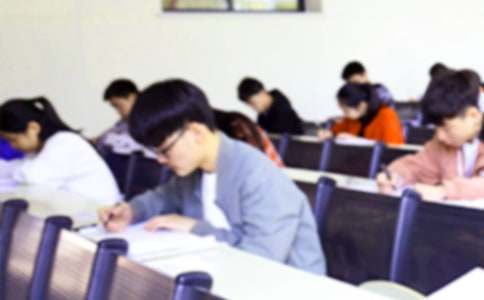- 相關(guān)推薦
全國(guó)英語(yǔ)等級(jí)考試pets3級(jí)試題閱讀精選C
無(wú)論在學(xué)習(xí)或是工作中,我們總免不了要接觸或使用試題,試題是命題者根據(jù)一定的考核需要編寫出來(lái)的。相信很多朋友都需要一份能切實(shí)有效地幫助到自己的試題吧?以下是小編收集整理的全國(guó)英語(yǔ)等級(jí)考試pets3級(jí)試題閱讀精選C,歡迎閱讀與收藏。

全國(guó)英語(yǔ)等級(jí)考試pets3級(jí)試題閱讀C 1
Part C
Directions:
Reading the following text from which five sentences have removed.Choose from the$enl,ences A—G the most suitable one tofill each numbered gap in the text(41一45).There are Two extra senteaces that you do not need to use.Mark your answers on your ANSWER SHEET 1.
Everywhere you look.you see kids bouncing a basketball or waving a tennis racquet(網(wǎng)球拍).And these kids are getting younger and younger.In some countries,children Call compete on basketball,baseball,and volleyball teams starting at age nine. 41 And swimming and gymnastics classes begin at age four,to pmpare children for competition。
It’S true that a few of these kids will develop into highly skilled athletes and may even become members of the national Olympic teams. 42 This emphasis on competition in sports is haying serious negative effects.
Children who get involved in competitive sports at a young age often grow tired of their sport.
Many parents pressure their kids to choose one sport and devote all their time to it. 43 But66 percent of the young athletes wanted to play more than one sport for fun.
Another problem is the pmssure imposed by over—competitive parents and coaches.Children are not naturally competitive.In fact,a rec:ent study by Paulo David found that most children dont even understand the idea of competition until they ale seven years old.
The third,and biggest,problem for young athletes is the lack of time to do their homework, have fun,be with friends--in short,time to be kids.When they ale forced to spend every aftemotm at sports practice,they often start to hate their chosen sport.A searchers found that 70 percent of kids who take part ill competitive sports before the age of twelve quit before they turn eighteen. Excessive competitive away all the enjoyment.
Need to remember the purpose of youth spons—to give kids a chance to have developing stron9,healthy bodies.
[A]Survey found that 79 percent of parents of young athletes wanted their children to concentrate on one sports
[B ]Many of them completely lose interest in sports.
[c]Very young kids don’t know why their parents are pushing them SO hard. The [d]young soccer organization has teams for children as young as five.
[e]children should have a regular time for sports.
[f] But what about the others,the average kids?
[g]Sports for children have two important purposes.
答案與解析:
PartC
參考譯文
四下望望,你會(huì)看到孩子們打籃球或揮舞網(wǎng)球拍。這些孩子正變得越來(lái)越年輕。在一些國(guó)家,兒童從九歲開(kāi)始就可以參加籃球、棒球和排球隊(duì)。少年足球組織有低至5歲的足球隊(duì)。為了讓孩子準(zhǔn)備競(jìng)爭(zhēng),從四歲起他們就可以上游泳和體操班。
確實(shí),有些孩子會(huì)發(fā)展成高度熟練的運(yùn)動(dòng)員,甚至可能成為國(guó)奧隊(duì)的成員。但是其他普通的孩子呢?這種對(duì)體育競(jìng)爭(zhēng)的強(qiáng)調(diào)存在著嚴(yán)重的負(fù)面影響。
孩子年幼的時(shí)候參與競(jìng)技體育會(huì)對(duì)其產(chǎn)生反感。許多父母迫使孩子們選擇一種運(yùn)動(dòng)并全身心投入其中。調(diào)查發(fā)現(xiàn)79%的年輕運(yùn)動(dòng)員家長(zhǎng)希望他們的孩子能夠?qū)P挠趶氖乱豁?xiàng)體育運(yùn)動(dòng)。但是,66%的年輕運(yùn)動(dòng)員都想嘗試多種運(yùn)動(dòng)。
另一個(gè)問(wèn)題是過(guò)度競(jìng)爭(zhēng)的父母和教練對(duì)孩子們所施加的壓力。競(jìng)爭(zhēng)不是孩子們的天性。事實(shí)上,保羅·戴維最近的一項(xiàng)研究發(fā)現(xiàn),大多數(shù)孩子甚至直到七歲都不了解競(jìng)爭(zhēng)的概念。幼小的孩童不懂為什么他們的父母把他們逼得那么緊。
第三,也是最大的問(wèn)題是,年輕的運(yùn)動(dòng)員們沒(méi)有時(shí)間做作業(yè),玩耍,與朋友在一起。總之,時(shí)間應(yīng)該屬于孩子。當(dāng)他們被迫每天下午練習(xí)體育,他們往往開(kāi)始懷恨自己選擇的運(yùn)動(dòng)。一個(gè)研究者發(fā)現(xiàn),在十二歲之前參加競(jìng)技體育的孩子們有70%會(huì)在十八歲前放棄。他們中的很多人失去了對(duì)運(yùn)動(dòng)的興趣。過(guò)度競(jìng)爭(zhēng)奪走了所有的'樂(lè)趣。
我們需要記住體育的目的——給孩子一個(gè)鍛煉堅(jiān)強(qiáng)體魄的機(jī)會(huì)。
答案及解析
41.D【解析】上一句說(shuō)到“這些孩子正變得越來(lái)越年輕。在一些國(guó)家,兒童從九歲開(kāi)始就可以參加籃球、棒球和排球隊(duì)”;下一句說(shuō)到“為了讓孩子準(zhǔn)備競(jìng)爭(zhēng),從四歲起他們就可以上游泳和體操班。”所以空格處也要談?dòng)嘘P(guān)低齡兒童和體育項(xiàng)目的內(nèi)容,故選D。
42.F【解析】上一句說(shuō)到“有些孩子會(huì)發(fā)展成高度熟練的運(yùn)動(dòng)員,甚至可能成為國(guó)奧隊(duì)的成員”,其中a few是指出少部分孩子運(yùn)動(dòng)競(jìng)技成績(jī)好,此處筆鋒一轉(zhuǎn),轉(zhuǎn)向大多數(shù)其他孩子。故選F。
43.A【解析】上一句說(shuō)到,“許多父母追使孩子們選擇一種運(yùn)動(dòng)并全身心投入其中”;后一句說(shuō)到,“但是,66%的年輕運(yùn)動(dòng)員都想嘗試多種運(yùn)動(dòng)。”這說(shuō)明父母和孩子對(duì)待體育活動(dòng)的態(tài)度不同,A項(xiàng)所述內(nèi)容正好與后面But一句形成轉(zhuǎn)折關(guān)系,進(jìn)一步說(shuō)明了父母的態(tài)度,故選A。
44.C【解析】上一句說(shuō)到,“大多數(shù)孩子甚至直到七歲都不了解競(jìng)爭(zhēng)的概念,”c項(xiàng)所述內(nèi)容進(jìn)一步說(shuō)明幼小的孩子不明白競(jìng)賽的含義,故選C。
45.B【解析】上一句說(shuō)到,“在十二歲之前參加競(jìng)技體育的孩子們有70%會(huì)在十八歲前放棄”,后一句說(shuō)到,“過(guò)度競(jìng)爭(zhēng)奪走了所有的樂(lè)趣”。因此,B項(xiàng)所述內(nèi)容不僅補(bǔ)充前面的研究結(jié)果,且與后文形成遞進(jìn)關(guān)系。故選B。
全國(guó)英語(yǔ)等級(jí)考試pets3級(jí)試題閱讀C 2
請(qǐng)根據(jù)下面的短文回答{TSE}題:
People thank their parents with two days: Mother s Day, on the second Sunday in May, and Father s Day, on the third Sunday in June. These days are to show love for parents. They raise their children and educate them to be good people. They give them love and care.
The tWO days are celebrated(慶祝)in many different ways.On Mother’S Day,people wear carnations.Wearing a red one means having a living mother, while a white one shows that the mother is dead. It s also a day when people whose parents are dead visit the cemetery. On these days families get together at homes as well as in restau-
rants.They often have outdoor barbecues(燒烤聚會(huì))for Father’S Day.These are days of fun and good feelings.
Another tradition(傳統(tǒng))is to give cards and gifts.Children make them in school.Many people make their own presents.These are more valued(寶貴的)than those bought in shops.It ’8 not the value of the gift that is important, but the love for the parents. Card shops, florists, candy makers, phone companies and other shops do lots of business during these holidays.
參考解析:參考譯文
人們以兩個(gè)特殊的日子向父母表示感謝:每年五月第二個(gè)星期日的母親節(jié)和六月第三個(gè)星期日的父親節(jié)。這兩天是兒女向父母表達(dá)愛(ài)心的日子。父母把孩子們撫養(yǎng)長(zhǎng)大,教育他們,關(guān)心和愛(ài)護(hù)他們。
人們用各種形式來(lái)慶祝這兩個(gè)日子。在母親節(jié)的時(shí)候,人們佩戴康乃馨。紅色康乃馨表示母親還健在,白色的表示母親已經(jīng)去世。這一天,很多人也會(huì)去公墓懷念逝世的父母。在這兩天,家家都會(huì)聚在家中或是餐館。人們也常常在父親節(jié)的時(shí)候舉行戶外燒烤聚會(huì)。這是充滿歡樂(lè)和美好情感的.日子。
另一個(gè)傳統(tǒng)是贈(zèng)送卡片和禮物。孩子們?cè)趯W(xué)校制作,很多大人也會(huì)自制禮物。這些親手做的禮物比在商店買的更有價(jià)值,因?yàn)閷?duì)父母的愛(ài)使得這些禮物變得貴重。卡片店、花店、糖果店、電話公司還有很多其他的商店都會(huì)在這些節(jié)日大做生意。
答案及解析
Which is not a reason for children to show love for parents?
A.Parents love and take care of children.
B.Parents pass away before children grow up.
C.Parents give education to children.
B【解析】題干意為“哪一個(gè)不是兒女表示對(duì)父母愛(ài)的原因?”從文章第一段最后兩句“They raise their children and educate them to be good people.They give them love and care.”可以找到選項(xiàng)A和C。而選項(xiàng)B的意思是“父母在兒女長(zhǎng)大之前就去世了”這個(gè)不是理由。
What do you know about "carnation" .9
A.It only has two kinds of colors.
B.It refers to the clothes people wear on Mother s Day.
C.It s a kind of flower showing love and best wishes.
ABC
參考答案:C
【全國(guó)英語(yǔ)等級(jí)考試pets3級(jí)試題閱讀C】相關(guān)文章:
2017全國(guó)英語(yǔ)等級(jí)考試pets3級(jí)試題閱讀精選D03-17
2017全國(guó)英語(yǔ)等級(jí)考試試題pets3閱讀精選03-17
2017全國(guó)英語(yǔ)等級(jí)考試試題pets3閱讀習(xí)題12-03
2017全國(guó)英語(yǔ)等級(jí)考試pets3級(jí)寫作試題精選12-01
2017全國(guó)英語(yǔ)等級(jí)考試試題pets3閱讀訓(xùn)練題03-17
2016年全國(guó)英語(yǔ)等級(jí)考試pets3模擬試題03-22
全國(guó)英語(yǔ)等級(jí)考試閱讀試題201703-29